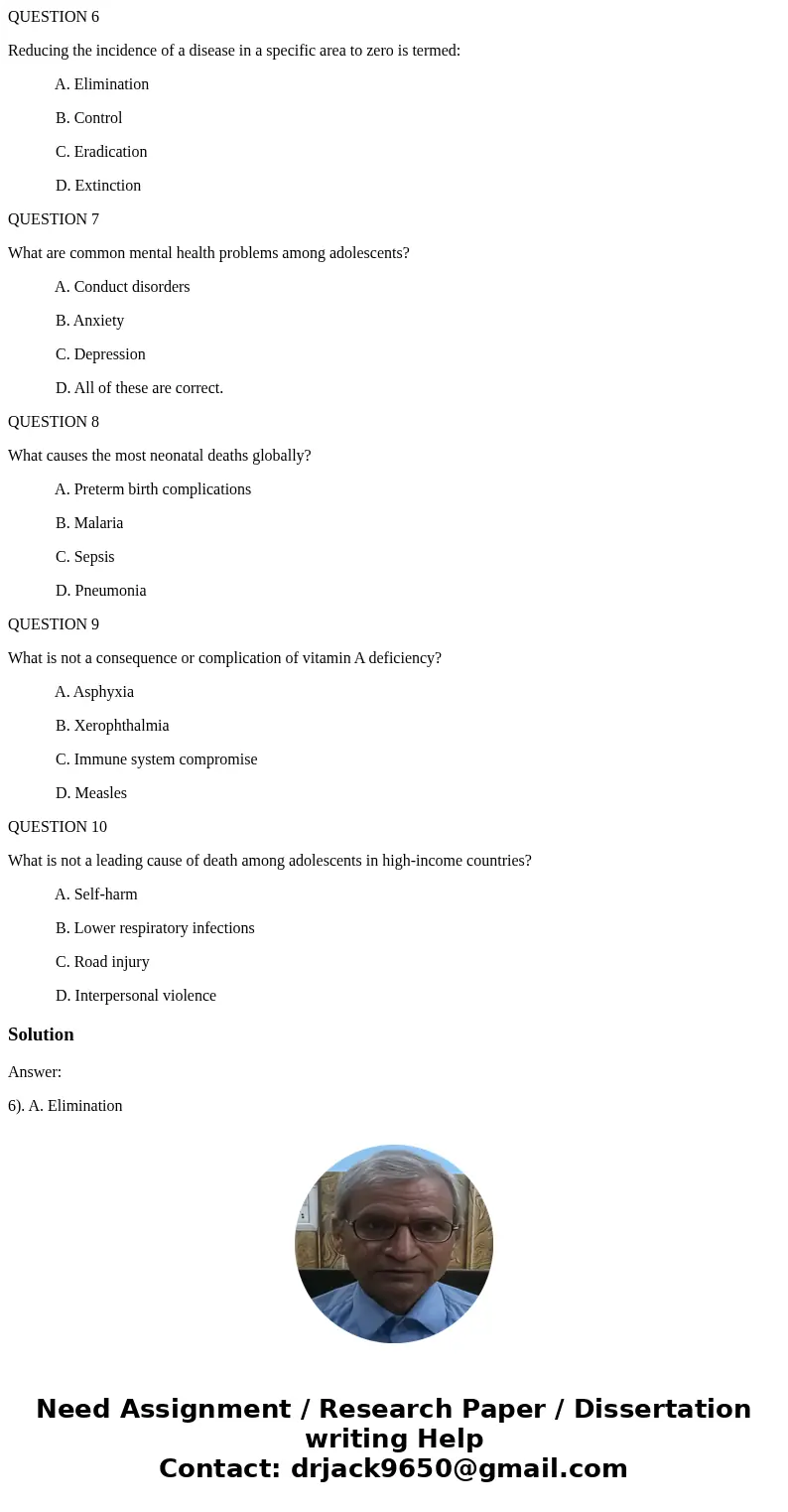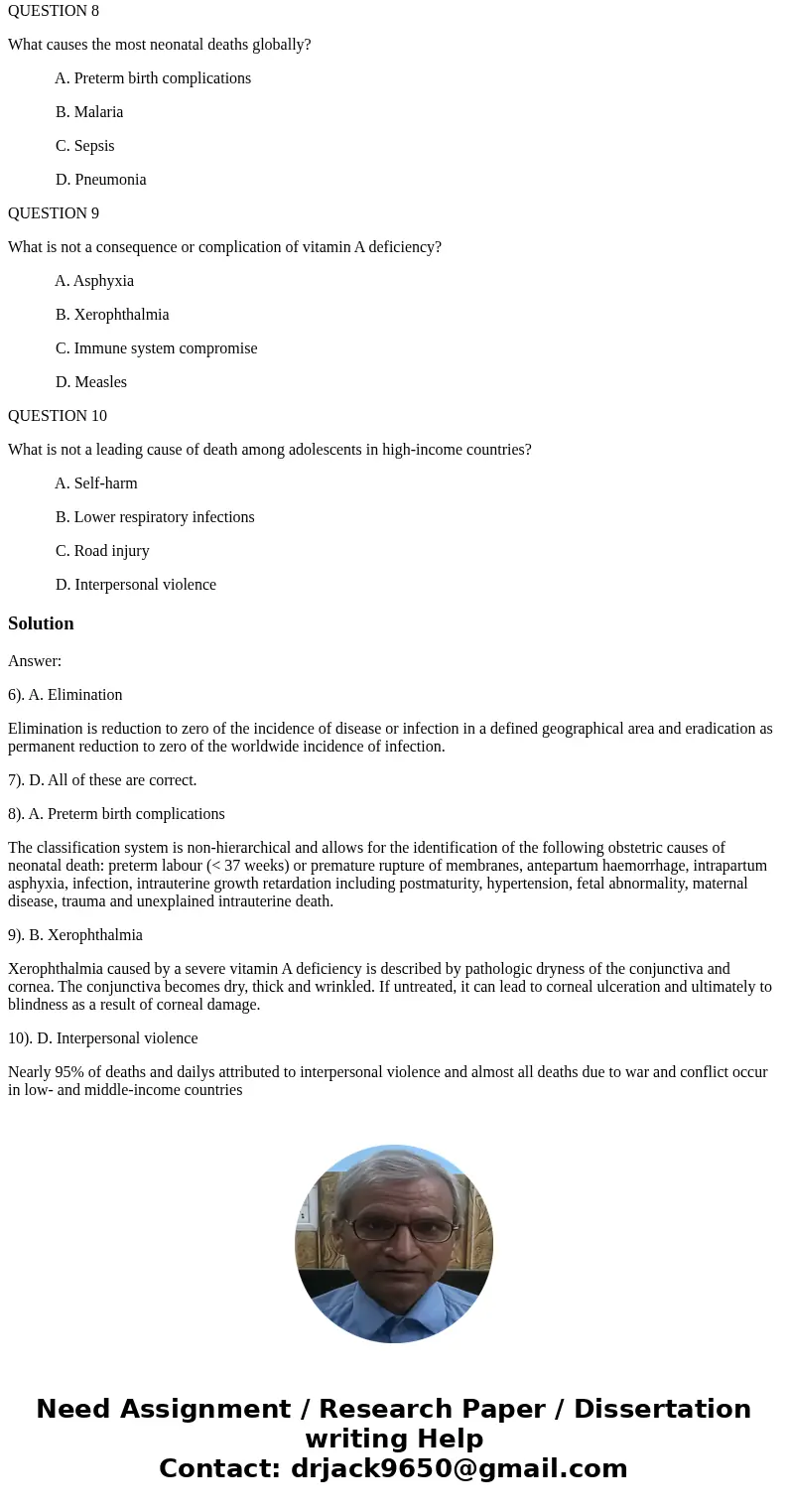QUESTION 6 Reducing the incidence of a disease in a specific
QUESTION 6
Reducing the incidence of a disease in a specific area to zero is termed:
A. Elimination
B. Control
C. Eradication
D. Extinction
QUESTION 7
What are common mental health problems among adolescents?
A. Conduct disorders
B. Anxiety
C. Depression
D. All of these are correct.
QUESTION 8
What causes the most neonatal deaths globally?
A. Preterm birth complications
B. Malaria
C. Sepsis
D. Pneumonia
QUESTION 9
What is not a consequence or complication of vitamin A deficiency?
A. Asphyxia
B. Xerophthalmia
C. Immune system compromise
D. Measles
QUESTION 10
What is not a leading cause of death among adolescents in high-income countries?
A. Self-harm
B. Lower respiratory infections
C. Road injury
D. Interpersonal violence
Solution
Answer:
6). A. Elimination
Elimination is reduction to zero of the incidence of disease or infection in a defined geographical area and eradication as permanent reduction to zero of the worldwide incidence of infection.
7). D. All of these are correct.
8). A. Preterm birth complications
The classification system is non-hierarchical and allows for the identification of the following obstetric causes of neonatal death: preterm labour (< 37 weeks) or premature rupture of membranes, antepartum haemorrhage, intrapartum asphyxia, infection, intrauterine growth retardation including postmaturity, hypertension, fetal abnormality, maternal disease, trauma and unexplained intrauterine death.
9). B. Xerophthalmia
Xerophthalmia caused by a severe vitamin A deficiency is described by pathologic dryness of the conjunctiva and cornea. The conjunctiva becomes dry, thick and wrinkled. If untreated, it can lead to corneal ulceration and ultimately to blindness as a result of corneal damage.
10). D. Interpersonal violence
Nearly 95% of deaths and dailys attributed to interpersonal violence and almost all deaths due to war and conflict occur in low- and middle-income countries


 Homework Sourse
Homework Sourse